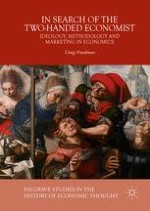2016 | OriginalPaper | Buchkapitel
The Heart Is a Lonely Hunter: Chicago’s Climb to Glory
verfasst von : Craig Freedman
Erschienen in: In Search of the Two-Handed Economist
Verlag: Palgrave Macmillan UK
Aktivieren Sie unsere intelligente Suche, um passende Fachinhalte oder Patente zu finden.
Wählen Sie Textabschnitte aus um mit Künstlicher Intelligenz passenden Patente zu finden. powered by
Markieren Sie Textabschnitte, um KI-gestützt weitere passende Inhalte zu finden. powered by
